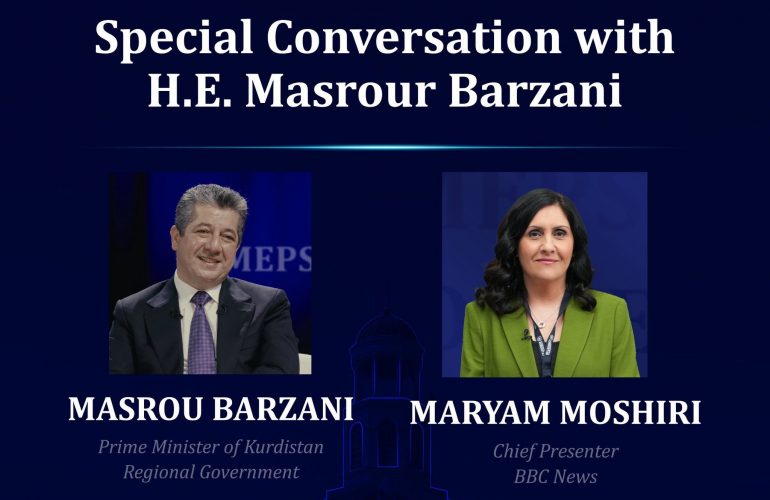Mashan Al-Jaburi, a prominent Sunni politician, has accused Halbousi of corrupt practices, including hiring a 'U.S. company for personal support' (presumably a reference to his party allegedly hiring prominent a U.S. lobbying firm on the hill) and manipulating media portrayals. He alleged that Halbousi prioritized personal and familial interests over public duties, predicting Halbusi's removal and potential trial on corruption charges.
Speaking to Rudaw TV, Jaburi said, "He acted in the best interests of himself, his family, and those close to him. I was sure he would be removed. He may also be tried on corruption charges."
The Presidency of the Iraqi Council of Representatives has officially terminated the membership of Speaker Mohammed al-Halbousi following the Federal Supreme Court's recent decision.
According to a letter signed by Deputy Speaker Mohsen Al-Mandalawi, the court's decision led to the termination of Mohammed Rikan Hadid Al-Halbousi's membership in the House of Representatives for the fifth electoral cycle, effective Nov. 14, 2023.
Faleh Al-Fayadh, head of Iraq's Popular Mobilization Forces, met with Nikolai Patrushev, secretary of the Russian Security Council, in Moscow, according to the Russian state news agency TASS on Monday.
"Nikolai Patrushev and Faleh Al-Fayadh discussed aspects of Russian-Iraqi cooperation in the security domain, as well as the situation in the Middle East," the Russian Security Council staff reported.
On vision for the future
Then a slight non sequitur

On oil exports
'I think the timing was wrong,' says Barzani on Halbousi ouster
"This was an unwanted crisis, an unwanted problem. I think it shouldn't have happened. And if there was any way to address this issue it should have been through different channels."
On the war in Gaza
"Are the people in Gaza better of today or were they better off before October 7th," asked Barzani?
"The answer is very clear."
Masrour Barzani interview about to begin

And this is how the Romanowski in Iraq described her meeting with PM Sudani
Iraqi PM meets U.S. Ambassador
Iraqi Prime Minister Mohammed Shia Al-Sudani met with the U.S. ambassador to Iraq, Alina Romanowski, on Monday to discuss strengthening bilateral relations and expanding joint cooperation across various sectors.
According to a press release from the prime minister's media office, key topics included collaboration between the Central Bank of Iraq and the U.S. Treasury ahead of a significant meeting scheduled between these entities next week.
Sudani and Romanowski also reviewed the situation in Gaza, addressing the ongoing conflict and its impact on civilians. The prime minister expressed Iraq's firm stance on the Palestinian issue, calling for an end to the violence and the establishment of humanitarian corridors for essential supplies.
Emphasizing Iraq's commitment to international diplomatic norms, Sudani's office says he assured the safety and security of diplomatic missions and advisers within the Global Coalition Against Islamic State. He highlighted the proactive role of Iraqi security services in maintaining stability and security within the country.
Sudani's cabinet has been under pressure to ensure the protection of U.S. forces in Iraq. The prime minister has promised to ensure the safety of coalition bases and personnel, a goal not yet achieved.
One way the U.S. can exert pressure on the Iraqi government is through control of dollar allocations to Iraq’s Central Bank. In recent years, the U.S. Treasury has pressured the Central Bank of Iraq to introduce policies leading to a dollar shortage, unofficially devaluing the dinar.
As Iraqis rely on many imported products priced in dollars, millions have seen their purchasing power decrease. Sudani has so far struggled to reverse the dinar's decline.
The U.S. has urged Iraqi banking authorities to better control the circulation of the dollar due to concerns about currency smuggling, particularly to Iran. The U.S. also sees a more disciplined money supply approach by the Central Bank of Iraq as key to integrating Iraqi financial institutions into the global banking system, thus curbing international money laundering, a major concern of the U.S. Treasury.
U.S. Centcom announces major successes in counter-IS operations
The U.S. Central Command (USCENTCOM) issued a press release Monday detailing recent achievements in the fight against IS in Iraq and Syria during September and October. According to USCENTCOM, a total of 79 operations were conducted in collaboration with coalition and partner forces, resulting in the death of 13 IS operatives and the detention of 78.
The press release highlighted the capture of prominent ISIS leaders and operatives, including those involved in planning attacks and attempting to free IS prisoners to replenish their ranks. In September, 31 operations led to eight IS deaths and 19 detentions, while October saw an increase in intensity with 48 operations resulting in five deaths and 59 detentions.
USCENTCOM's breakdown by country revealed that in Iraq, 53 partnered operations led to 10 deaths and 33 detentions, whereas in Syria, 26 operations (including three solely by US forces) resulted in three deaths and 45 detentions.
Gen. Michael Erik Kurilla, commander of USCENTCOM, reiterated the commitment to the enduring defeat of IS in the press release. These operations signify the ongoing efforts to prevent ISIS from regaining strength and highlight the need for continuous targeted military actions against the terrorist group. The press release underlines the success of these coordinated efforts in maintaining regional stability and combating the threat posed by IS.
This comes as anti-IS U.S.-led coalition forces have come under a series of attacks in Iraq and Syria by Iran-backed Shiite militias in response to the unfolding war between Israel and Hamas.











